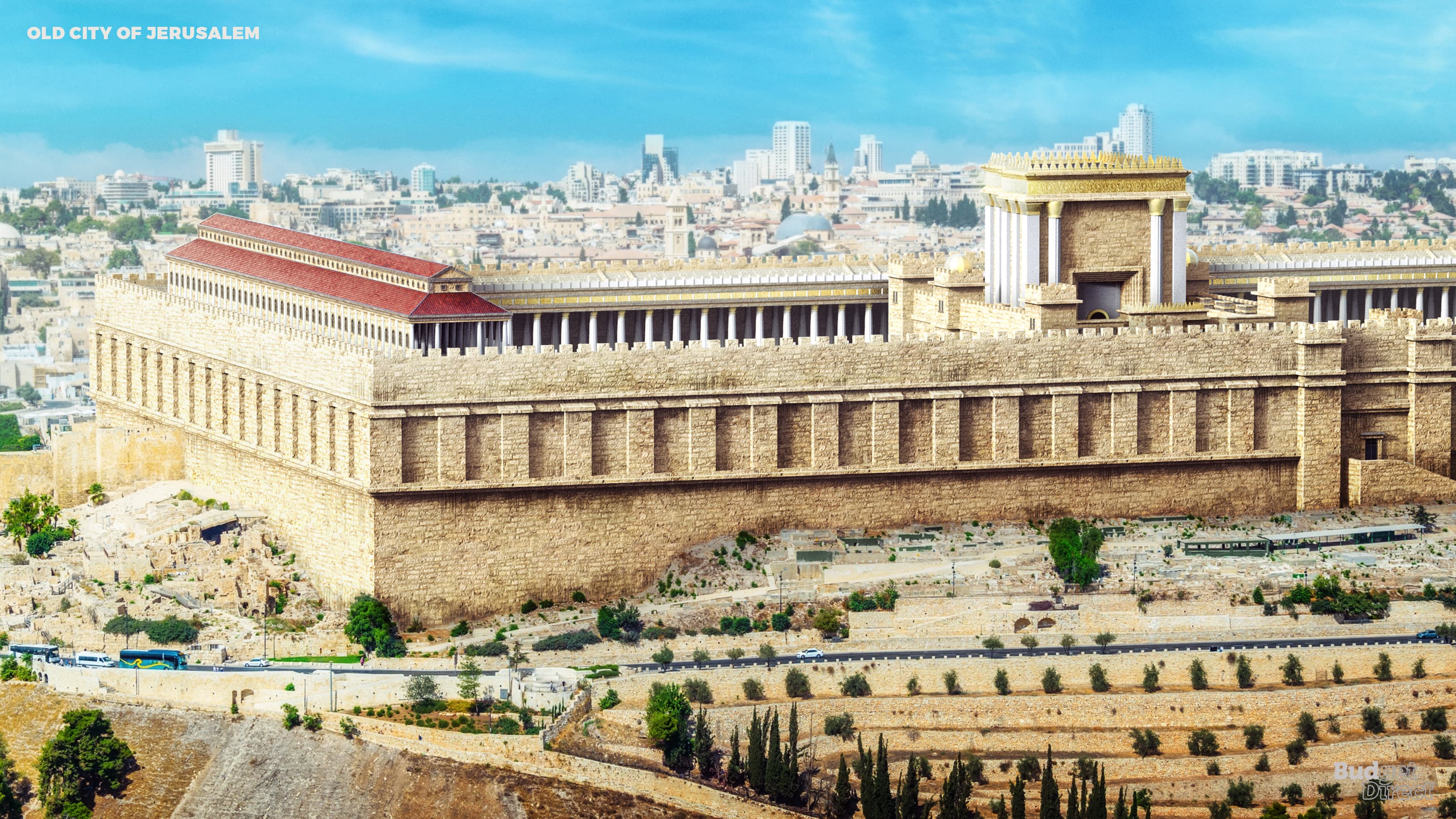Many travelers are familiar with UNESCO’s World Heritage List, which include both cultural and natural sites deemed to “be of outstanding universal value” by the U.N. agency.
Less is known about the organization’s List of World Heritage in Danger. This list designates 53 World Heritage sites under threat of “serious and specific dangers” due to factors such as environmental change, structural degradation, armed conflict and neglect.
In collaboration with insurance company Budget Direct, London-based creative agency NeoMam Studios worked with Serbian and Turkish architects to digitally reconstruct several UNESCO sites on this list. Using computer-generated renderings and animations, the sites are returned to a point in time that looks very different from what we see today.
Leptis Magna in Libya
Leptis Magna was added to UNESCO’s list of endangered sites in 2016.
Courtesy of Budget Direct
Forgotten for over 900 years, the ancient city of Leptis Magna was once considered to be one of the most beautiful cities in the Roman Empire. The Mediterranean city flourished under the reign of native-born Septimius Severus who, following the reigns of Marcus Aurelius and Commodus, became the Roman emperor from 193 to 211.
Like many Roman cities, Leptis Magna had a theater. This one, the oldest Roman theater in Africa, was dug into a low hill and included five flights of steps made from natural stone and concrete. It is believed that the structure was once decorated with hundreds of statues (133 have been identified), yet only two remain intact today.
Located in what is now northern Libya, the site is primarily under threat due to environmental reasons such as flooding and plant overgrowth. Ongoing warfare and tourism (in this case, a lack thereof) exacerbate these problems.
Old City of Jerusalem and its Walls
The Second Temple on the Temple Mount, as it may have looked following Herod the Great’s refurbishment.
Courtesy of Budget Direct
The Old City is a .35-square-mile walled area inside modern-day Jerusalem that contains some of the most important religious sites in the world, including the Temple Mount, the Al-Aqsa Mosque and the Church of the Holy Sepulchre.
Today, the portion shown here, the Temple Mount, is marked by the gold-roofed Dome of the Rock, which dates to 692 A.D. Before it, Solomon’s Temple (the First Temple) and the Second Temple stood, until the latter was destroyed by the Romans in 70 A.D.
A remnant of the Second Temple complex exists today, a portion of a retaining wall — commonly known as the Western Wall or Wailing Wall — which is one of the most sacred sites in the world for Jewish people today.
After being proposed by Jordan, the Old City of Jerusalem and its walls were added to UNESCO’s “in danger” list in 1982, just one year after being named to the World Heritage List.
Palmyra in Syria
Experts believe that new technology will help reconstruct destroyed parts of Palymyra’s Temple of Bel.
Courtesy of Budget Direct
Originally a great caravan oasis for traders from Persia, China, India and the Roman Empire, the city of Palmyra made headlines in 2015 after it was captured by the Islamic State (IS) during the Syrian Civil War.
The militant group destroyed ancient sites, conducted mass executions in a Roman-era theater and beheaded Syrian archaeologist Khaled al-Asaad, the head of antiquities of Palmyra, when he reportedly refused to reveal the location of the city’s hidden antiquities.
The Temple of Bel, shown here, did not survive the onslaught. In this digital rebuild, the “before” is what remained of the structure before IS demolished it. A lone archway (in the back) and a portion of a pillar is all that stands today.
Nan Madol in Micronesia
The partially-sunken city of Nan Madol, which thrived from 1200 to 1700, has been called the “Venice of the Pacific.”
Courtesy of Budget Direct
It’s been described as a destination cut straight from an Indiana Jones movie.
Nan Madol is an abandoned city built atop a lagoon that contains over 90 man-made islands and a canal system.
Carbon dating estimates construction began in the 12th century (about the same time as Cambodia’s Angkor Wat), though little is known as to how the local Saudeleur population moved the heavy volcanic basalt rocks to create the stone palaces, temples and tombs of the lost water city. Local legend attributes it to magic, though scholars believe they were likely floated from the other side of the island.
Not widely known and not necessarily easy to get to — you’ve got to fly to Pohnpei, Micronesia, drive an hour outside of the main town of Kolonia and then walk through a watery mangrove forest to reach it — the area saw an increase in tourism when it was named to UNESCO’s World Heritage List in 2016. Almost immediately, it was placed on the danger list due to coastal erosion, rising sea levels, silt accumulation in the canals and encroaching mangrove roots that are disturbing the ancient architecture.
Portobelo-San Lorenzo fortifications in Panama
Panama’s Fort San Lorenzo is subject to environmental threats caused by humidity and soil erosion from the Chagres River.
Courtesy of Budget Direct
Located 50 miles apart on the Caribbean side of Panama’s coastline, the Portobelo and San Lorenzo military forts are referred to by UNESCO as “masterpieces of human creative genius.”
Built by the Spanish Empire, both forts were once part of a vast system — that spanned from Cuba to Colombia — created to protect the commercial route between the Americas and Spain between the 16th and 18th centuries. The forts represented revolutionary military architecture at the time and were steeled to repeal attacks from raiders, pirates and buccaneers.
Both are well preserved, though they were added to UNESCO’s list of sites “in danger” in 2012 due to environmental factors, urbanization and a lack of maintenance and management.
